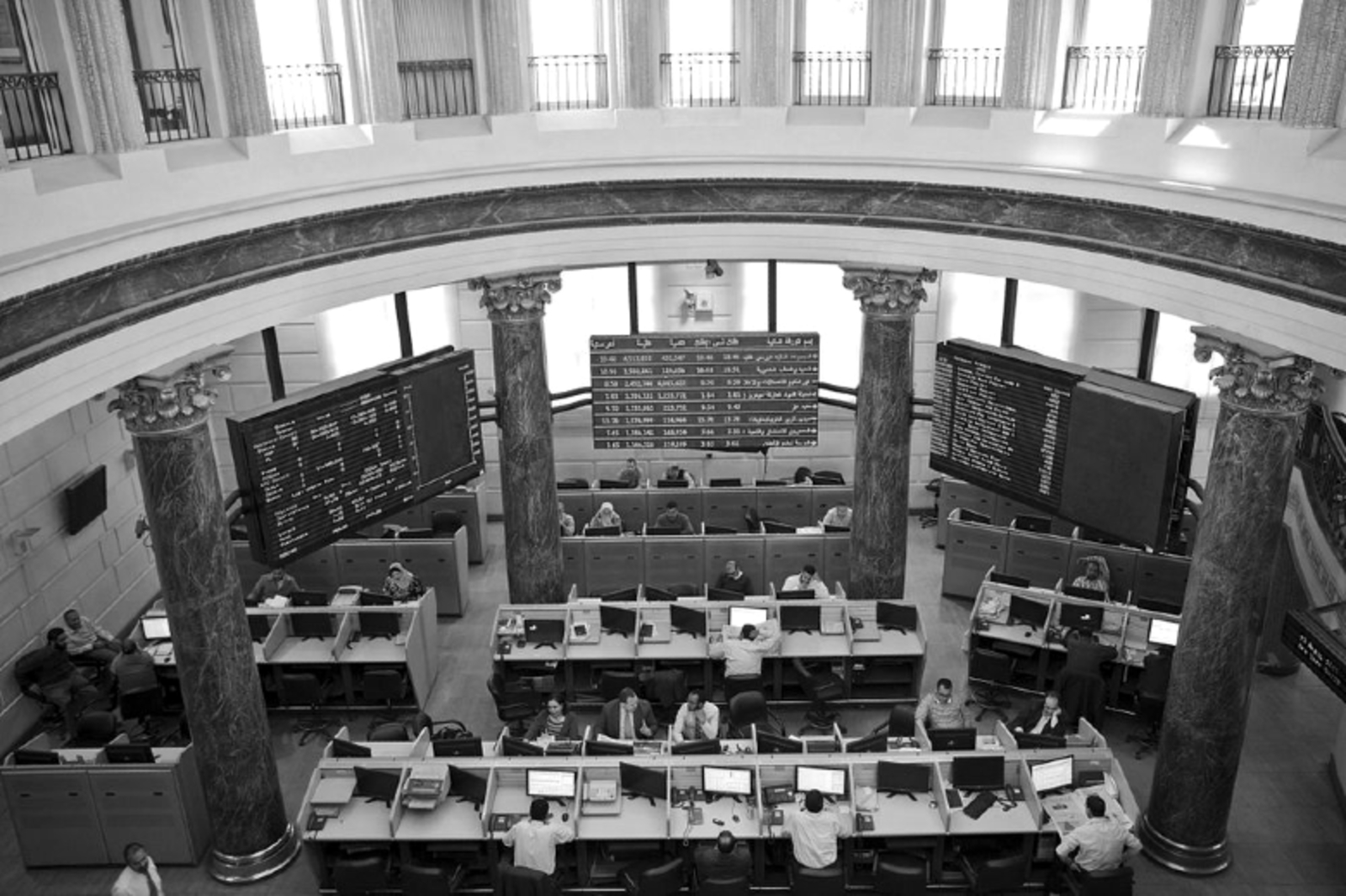The EGX wants to bring local institutional investors back into the market

The EGX wants state institutions to invest more in capital markets, with EGX officials having held recently a series of meetings with state-owned institutions in a bid to increase the amount of domestic institutional money in Egypt’s equity market and raise liquidity, a source with first-hand knowledge of the push told Enterprise.
Who’s involved: The EGX has in recent weeks been meeting with a number of government institutions, fund managers, and the Central Auditing Organization to discuss issues that are preventing them from investing in the market. Egypt Post, state-owned ins. companies including Misr Ins. Holding, the National Social Ins. Authority, and the General Authority for Health Ins., and the Egyptian Endowment Authority have all been involved, our source says.
What’s the driver? It’s all about liquidity. Trading volumes on the bourse have been anemic this year. Foreign institutions have pulled back from emerging markets in general (and Egypt, in particular) and state institutions have traditionally stayed away from equities (outside of units at major financial institutions such as Banque Misr and the National Bank of Egypt). That’s left retail investors fully in charge of the direction of the local market in 2022: Domestic institutions accounted for less than 4% of total trading volume in May, according to Enterprise calculations based on figures provided to us by the bourse. Local institutional appetite has picked up in recent weeks, but so far in July has still only made up 13% of trades. “It’s an ongoing process, and this is one of the most important issues we’ve been working on lately,” our source said of the talks. “The market currently needs an increase in liquidity, particularly institutional liquidity.”
2022 has been a bad year for the EGX: A general risk-off sentiment and the retreat of foreign institutional investors from emerging markets has driven the benchmark EGX 30 to lows not seen since November 2016. A litany of headwinds — including rampant global inflation, rising US interest rates and geopolitical worries thanks to Vladimir Putin’s invasion of Ukraine — have caused foreign money to exit the market, which is currently down nearly 23% year-to-date.
But the EGX is hoping a more flexible investing environment will draw local institutions back: The meetings kicked off after Prime Minister Moustafa Madbouly discussed the matter with EGX boss Mohamed Farid in April. By bringing all concerned parties to one table, the EGX wants to create more flexible investment frameworks that provide better returns to investors and enhance market liquidity. “We’re currently looking to raise the quality of the investment process more than we’re looking to raise the amount of investments,” an EGX official told us.
One problem: Ins. and pension funds don’t tend to get heavily involved in equities: Local ins. companies often focus their investments in debt (both sovereign and corporate). The social security and pensions law requires that public pension and social ins. funds invest no less than 75% of their capital in treasury bills and bonds, with the remainder divided among a range of asset classes. The state ins. fund for public-sector workers invested a mere 1% of its total funds in the EGX in 2019, according to the fund’s then-head Mohamed Seoudi.
The EGX thinks it has two potential solutions to the problem:
#1- Better asset managers: Following the series of meetings, state institutions identified the need to develop a criteria for selecting competent asset managers and make sure they’re qualified to make better investment decisions.
#2- Loosening the reins on asset managers: Current rules in place to limit losses and mitigate risk place strict limits on how managers of state assets can allocate capital. Participants in the meetings concluded that managers need to be given more flexibility when making investment decisions.